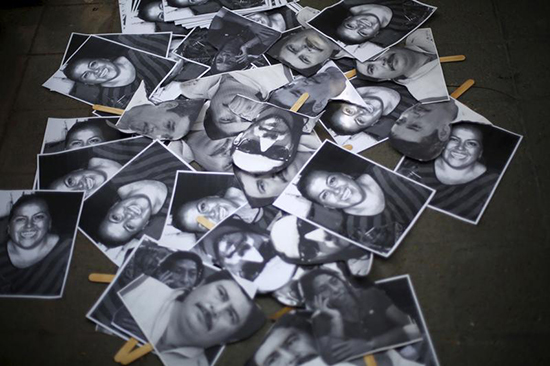According to initial news reports, Arrieta was hit by four 9mm caliber bullets as he arrived at his home. He was taken to a local hospital, where he remains in serious condition, media reports said.
Arrieta, 51, has worked as a journalist for more than 20 years, according to news reports and a journalist from Poza Rica who spoke with CPJ. The journalist, who asked to remain anonymous for fear of his safety, said that Arrieta wrote mostly about politics and general news.
“Today’s shooting of editor Armando Arrieta Granados is another reminder that the Mexican state of Veracruz remains one of deadliest places in the world for journalists,” Carlos Lauría, CPJ’s senior program coordinator for the Americas, said from New York. “Federal and state authorities should exhaustively investigate the attack, establish a motive, and bring all those responsible to justice as a step toward ending this legacy of violence.”
Arrieta most recently wrote about Mexican presidential candidate Margarita Zavala, the national oil company Pemex, and several deaths in a local hospital. CPJ’s attempts to reach the newspaper for comment were unsuccessful.
The Veracruz state attorney general’s office released a short statement saying an investigation has begun. The statement said that Arrieta was attacked by a single unknown individual, whereas initial media reports mentioned an unknown number of attackers. The statement said that he was being treated for gunshot wounds in a local hospital. The statement made no mention of the victim’s work as a journalist as a possible motive for the attack. Attempts by CPJ to reach the investigators for further comment were unsuccessful.
Jorge Morales Vázquez, executive secretary of the Veracruz State Commission for the Care and Protection of Journalists (CEAPP), told CPJ that Arrieta was in serious condition and had been moved to a hospital in the city of Puerto de Veracruz, where he was being treated for gunshot wounds to the chest and a punctured lung.
CPJ was not immediately able to reach the office of the Federal Special Prosecutor for Attention to Crimes against Freedom of Expression (FEADLE) or the Federal Mechanism for the Protection of Journalists to establish whether federal investigators were looking into the attack, or whether Arrieta was enrolled in the federal government’s protection program for journalists. His friend and colleague from Poza Rica said that Arrieta had not reported having received any threats.
According to CPJ research, at least four journalists from Veracruz were killed in direct relation to their work during the 2010-2016 term of former Gov. Javier Duarte de Ochoa, now a fugitive from corruption and graft charges, while the motives for the killing of another 10 journalists in the state remain unclear. On March 19, Ricardo Monlui, a reporter and columnist for the newspaper El Político in the Veracruz city of Córdoba, was murdered in the nearby town of Yanga, a case that CPJ is still investigating to determine whether the killing was related to his work.
Veracruz has long been one of Mexico’s most violent states, plagued by warfare between rival criminal groups fighting for control over lucrative drug and human-trafficking routes. At least 1,258 people were murdered in the state last year, according to news reports. Journalists from Veracruz told CPJ that Poza Rica in particular has been a hotspot for organized crime and violence.
